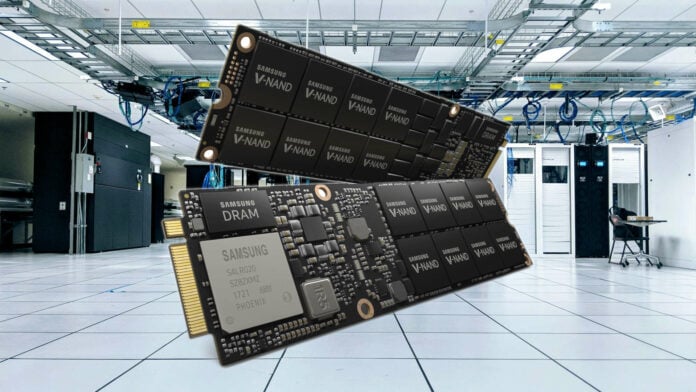Samsung Electronics has experienced one heck of a quarter, telling investors to expect record profits for the end of June. Revenue is reportedly up to 15 times higher year-on-year for the South Korean company, which perhaps rubs salt in the wound amid DRAM price rises that just won’t slow down.
Showcasing quarterly guidance of ₩74 trillion ($53 billion US), revenue has climbed substantially over the reported ₩640 billion ($460 million) in Q2 2023. It’s the same story for profit, rising to ₩10.4 trillion ($7.5 billion US) compared to ₩10 trillion ($7.2 billion) the year prior.
While Samsung doesn’t attribute its success to any one segment, rapid AI adoption clearly has something to do with it. Counterpoint Research analysts state that the smartphone market has grown 6% and Galaxy devices will undoubtedly have benefitted. By contrast, TrendForce reports DRAM has grown between 13% and 18% in Q2. Given its current trajectory, this looks like it’ll continue expanding for months to come.
Meanwhile, 2024 has been fairly bleak on the consumer side of things. Companies already increased their DRAM prices several times starting in January, and SSDs have become up to 55% more expensive, as previously predicted. Credit where it’s due, though, Samsung managed to keep its best SSDs fairly isolated from the inflation. While models from WD, Crucial, MSI, Seagate, and Kingston all skyrocketed, 990 Pro steered the course until recently.
It likely won’t stay that way for too much longer, though. TrendForce has already predicted another 5% to 10% increase in DRAM and VRAM prices in Q3. Great news for Samsung but a pretty poor showing for anyone looking to upgrade. Although it primarily affects the server market, cost increases almost always trickle down into the consumer segment.
Of course, we can’t place all the blame on Samsung. South Korea has reported record numbers for semiconductor exports, according to The Register. Even TSMC is potentially raising production fees due to AI demand, giving a great boon to Taiwan. All we can do is continue saving up.


